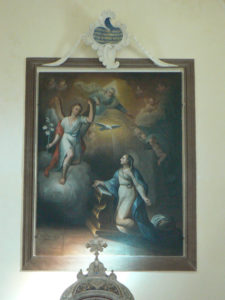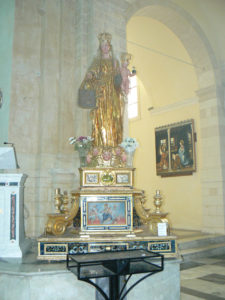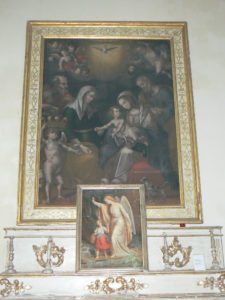The church houses splendid works that complete and decorate the interior.
The altar area definitely attracts attention. Composed of a series of wonderful elements, the structure behind the altar is a carving masterpiece.
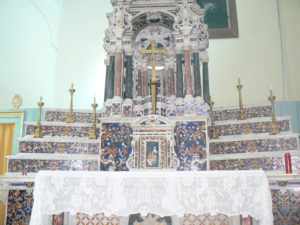
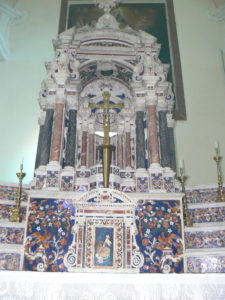
It is richly elaborate and a dozen columns surmounted by putto heads complete the composition. The same attention to detail can be found in the use of colour on the lower part of the structure, completely in marble; the artist chose and combined fragments of blue, red, yellow and white marble.
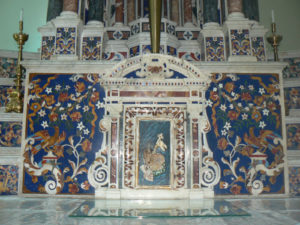
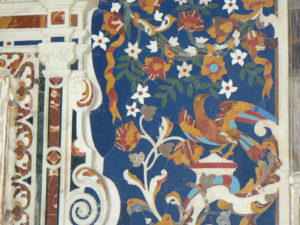
A little above the altar is the painting by Paolo Tanasi completed in 1827.
The work depicts the
Annunciation
, one of the most important moments in Christian history when the angel announced to the Virgin Mary that she would give birth to the Messiah. Tanasi chose well-defined colours such as yellow, which highlights the shape of the angel, and blue, which emphasises the corporeality of the Virgin Mary.
In the
transept
you can see the Madonna del Carmelo (Our Lady of Mount Carmel) completely covered in gold. She shines from afar and demands attention. The right
nave
houses the statue of Santa Teresa (St. Theresa) and as usual, above one of the altars is the depiction of the Holy Family, the Virgin Mary, the Child and John the Baptist.
